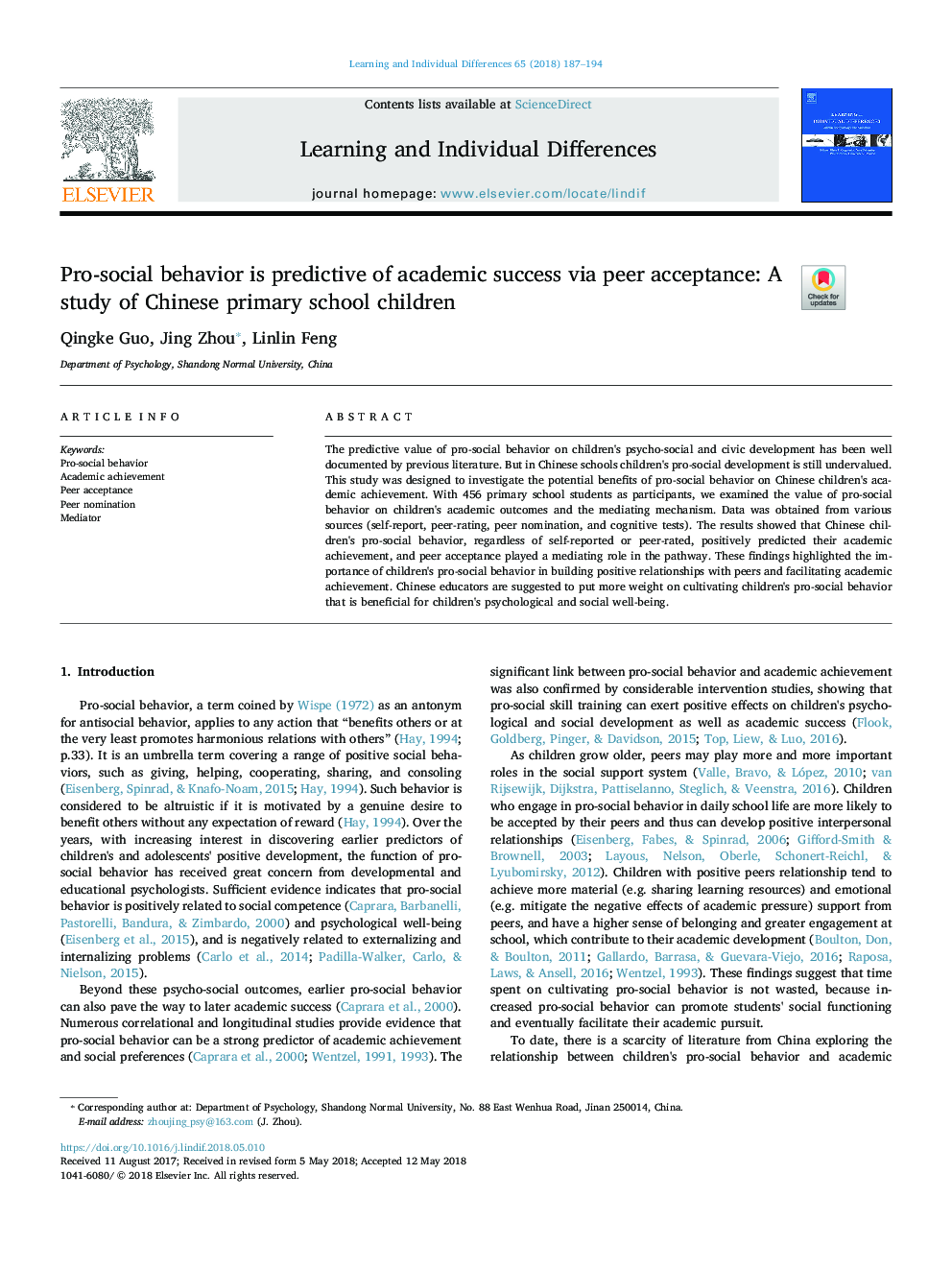| Article ID | Journal | Published Year | Pages | File Type |
|---|---|---|---|---|
| 6844325 | Learning and Individual Differences | 2018 | 8 Pages |
Abstract
The predictive value of pro-social behavior on children's psycho-social and civic development has been well documented by previous literature. But in Chinese schools children's pro-social development is still undervalued. This study was designed to investigate the potential benefits of pro-social behavior on Chinese children's academic achievement. With 456 primary school students as participants, we examined the value of pro-social behavior on children's academic outcomes and the mediating mechanism. Data was obtained from various sources (self-report, peer-rating, peer nomination, and cognitive tests). The results showed that Chinese children's pro-social behavior, regardless of self-reported or peer-rated, positively predicted their academic achievement, and peer acceptance played a mediating role in the pathway. These findings highlighted the importance of children's pro-social behavior in building positive relationships with peers and facilitating academic achievement. Chinese educators are suggested to put more weight on cultivating children's pro-social behavior that is beneficial for children's psychological and social well-being.
Related Topics
Social Sciences and Humanities
Psychology
Developmental and Educational Psychology
Authors
Qingke Guo, Jing Zhou, Linlin Feng,
